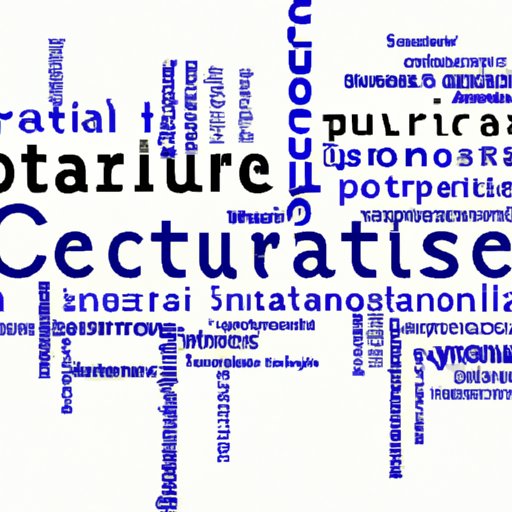Introduction
Culture is an elusive concept that defies a single definition. According to the Merriam-Webster dictionary, culture is “the customary beliefs, social forms, and material traits of a racial, religious, or social group”. Culture is a unique set of shared values, norms and practices that are passed down from generation to generation. It shapes our behaviour and influences the way we think about the world. In this article, we will explore the impact of cultural values, norms and practices on society.

Examining the Impact of Cultural Values
Cultural values are deeply held beliefs that shape how individuals and societies interact with each other. They are learned over time and are often rooted in religious and spiritual beliefs. According to a study by the Harvard School of Public Health, cultural values can have a powerful influence on health care decisions. For example, some cultures may place a greater emphasis on personal responsibility for health outcomes, while others may prioritize collective responsibility. Understanding the impact of cultural values is essential for providing quality health care.
Investigating the Influence of Cultural Norms
Cultural norms are the unwritten rules of behavior that are expected within a particular group or society. They can be explicit or implicit, but they all serve to help maintain order and stability within a society. Investigating the influence of cultural norms requires looking at the socialization process, group dynamics and intercultural communication. Socialization is the process by which individuals learn the values and behaviors of their society. Group dynamics, such as power and status hierarchies, can also shape how people behave within a culture. Finally, intercultural communication explores how different cultures interact with each other and how these interactions can lead to misunderstandings.

Analysing the Role of Cultural Practices
Cultural practices are the day-to-day activities that people engage in to express their culture. These can include everything from food and clothing to music and art. To understand the role of cultural practices, it is important to examine human behaviour, technology and media, language and religion. Human behaviour is shaped by the values and norms of a culture, and technology and media can be used to spread cultural ideas and values. Language is a powerful tool for expressing culture, and religion can provide a framework for understanding the world. Studying these aspects of culture can help us better understand how culture shapes our lives.
Understanding the Power of Cultural Traditions
Cultural traditions are the customs, beliefs and rituals that are passed down from generation to generation. They are often closely tied to religion and spirituality, and they can provide a sense of continuity and identity for a culture. To understand the power of cultural traditions, it is important to analyze rituals and festivals, traditional art forms and folklore and mythology. Rituals and festivals are often used to celebrate important events or occasions, and traditional art forms can be used to express cultural values. Folklore and mythology can provide insight into a culture’s beliefs and values.

Debating the Meaning of Cultural Identity
Cultural identity is the sense of belonging to a particular culture. It can be based on factors such as race and ethnicity, gender roles, national identity and patriotism. Examining these topics can help us understand the meaning of cultural identity and how it is shaped by cultural values and norms. Race and ethnicity can affect how individuals are perceived and treated within a culture, and gender roles can determine the roles and responsibilities of men and women. Nationalism and patriotism can also shape how a culture interacts with other cultures.
Conclusion
In conclusion, culture is a complex concept that is constantly changing and evolving. Understanding the impact of cultural values, norms and practices is essential for providing quality health care and engaging in meaningful intercultural communication. Examining the role of cultural practices, the power of cultural traditions and the meaning of cultural identity can help us better understand how culture shapes our lives. By studying these aspects of culture, we can gain insight into the complexities of cultural identity.
(Note: Is this article not meeting your expectations? Do you have knowledge or insights to share? Unlock new opportunities and expand your reach by joining our authors team. Click Registration to join us and share your expertise with our readers.)
